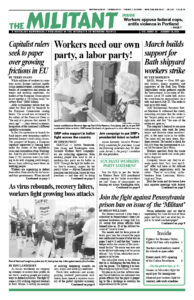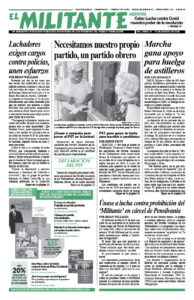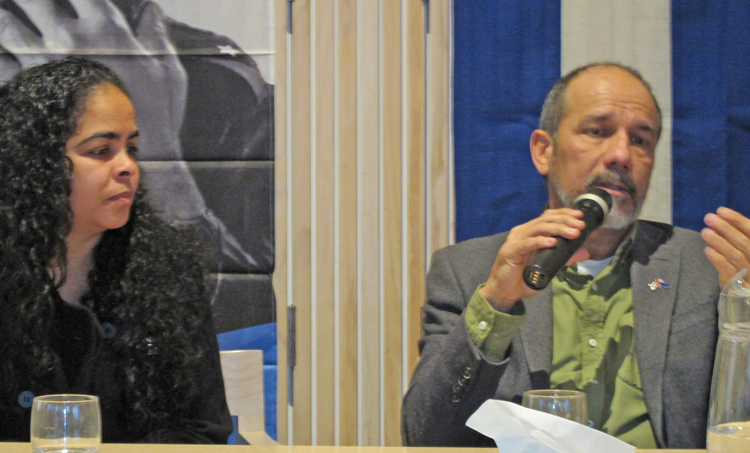AUCKLAND, New Zealand—Cuba’s fight against the COVID-19 pandemic and the solidarity its medical workers have extended to countries worldwide are part of “the fight to make a better world possible for everyone,” Cuba’s ambassador to New Zealand, Edgardo Valdés López, right, told a meeting of 45 here July 25.
The event was organized by the Cuba Friendship Society to mark July 26, the date 67 years ago when forces under the command of Fidel Castro attacked the Moncada Barracks and “announced the beginning” of the revolutionary struggle against the U.S.-backed dictatorship of Fulgencio Batista.
Similar commemorations were held around the world, including in Chicago, Albany and New York City.
The workers and farmers government established after Batista’s overthrow in 1959 put its resources into organizing workers and farmers to meet their own needs, including a mass literacy drive and building a health care system to serve all the people.
Faced with the COVID-19 pandemic, Valdés said, “Medical students went to the homes of all the population to check on people’s health.”
Above all, the ambassador said, “the Cuban people know how to live — and help each other — in difficult conditions.”
Chairperson Robert Reid noted there are 30,000 Cuban health workers serving voluntarily in over 60 countries today. As part of its over 60-year-long campaign against Cuba’s revolution, Washington slanders these medical personnel as “slaves” of the Cuban government.
Far from being “slaves,” Cuban doctors join internationalist missions “as an act of solidarity,” Valdés said. “They don’t see health care as a business, but a human right.”


